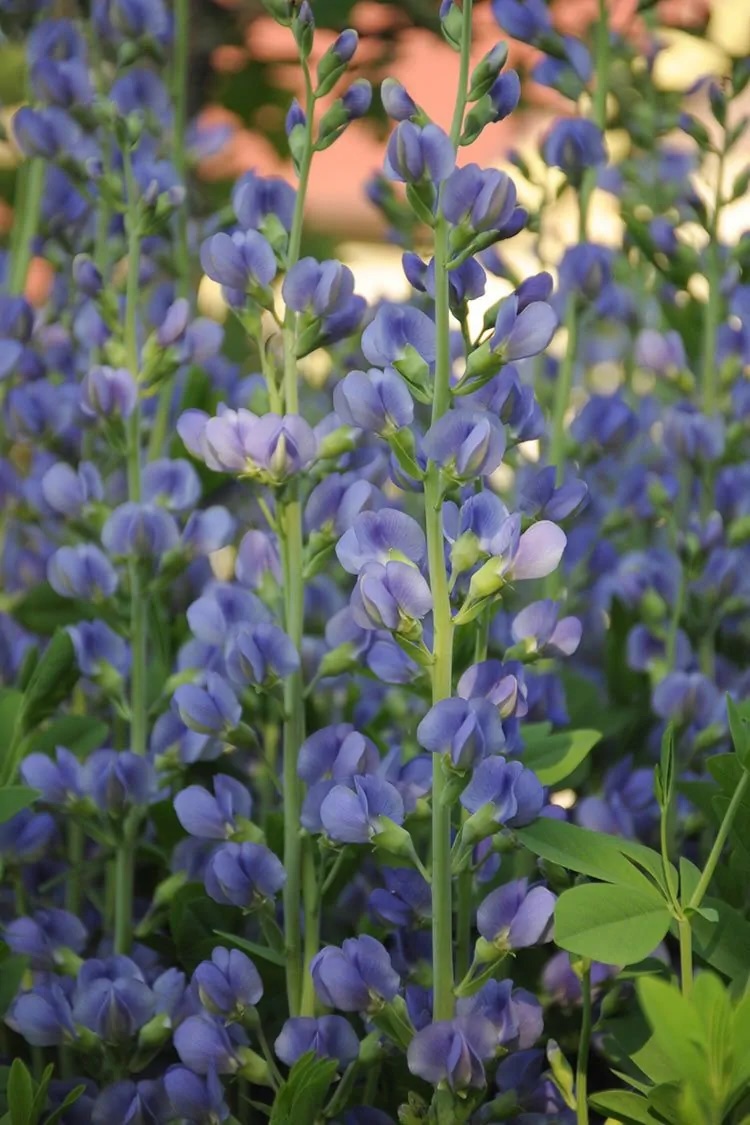
WOK holds first sale of the season
Thanks to wet, temperate weather and some nice big seedlings provided by Brian Black of Bay College, we were able to start our official plant sale early this year (June 26 for members); it ended July 23.
This year, we decided not to have customers pick up their orders at the end of the sale. Instead, we encouraged everyone to pick up their orders ASAP. As a result, their plants suffered less damage from slugs and other pests and were less likely to dry out.
We were able to offer some new species, including blue false indigo (pictured left), which Kristine Bradof grew from seed.
A second sale will be held toward the end of summer, which will include additional species that have taken their own sweet time to grow: prairie sage, rose mallow, button bush, maybe some sedges… Stay tuned.

Co-op garden project forging ahead
The Keweenaw Co-op has retained Mary Richardson of Richardson Landscape Designs to install a new native garden in front of its store, in Hancock. Mary expects to be on site in mid-August. She developed the garden design earlier this year.
Last year, the co-op selected Keweenaw Wild Ones as a beneficiary for its round-up fundraiser for local nonprofits. The WOK board is donating those funds (approximately $1,300) to the co-op to help defray the costs of the new garden.

Shall we order new signs?
The last garden sign in our inventory was sold to a customer during Strawberry Fest. Now what?
The board is considering ordering another batch of signs updated with Wild Ones’ new logo. But first we want to find out if there’s enough demand. When you get a survey, could you let us know if you’d like a sign? The cost should be under $30.
Helping to dry up the South Range ballfield
WOK is spearheading an effort to reduce the amount of water flooding the South Range ballfield.
Located on US-41 across from the VFW, the field is next to a wetland area created by runoff from the hillside across the highway. One solution might be to plant more native vegetation in the mini-wetland, such as pussy willows, tamaracks, and red twig dogwood, which could wick moisture out of the soil and lower the water level. Wetland ecologist Rod Chimner, a faculty member at Michigan Technological University, has agreed to evaluate the site and suggest possible mitigation strategies.
The South Range Village Council expressed its support for the project at its July meeting.
Out and about
Thanks to everyone who has been volunteering at local farmers’ markets, at Bridgefest, and the Chassell Strawberry Festival. We’ve sold a lot of plants and, perhaps more importantly, connected with many folks who are unfamiliar with the native plant gospel.
If you haven’t volunteered at a tabling event before, please consider giving it a try. It’s a chance to learn more about native plants from your fellow volunteers and to meet some fun and interesting people.
